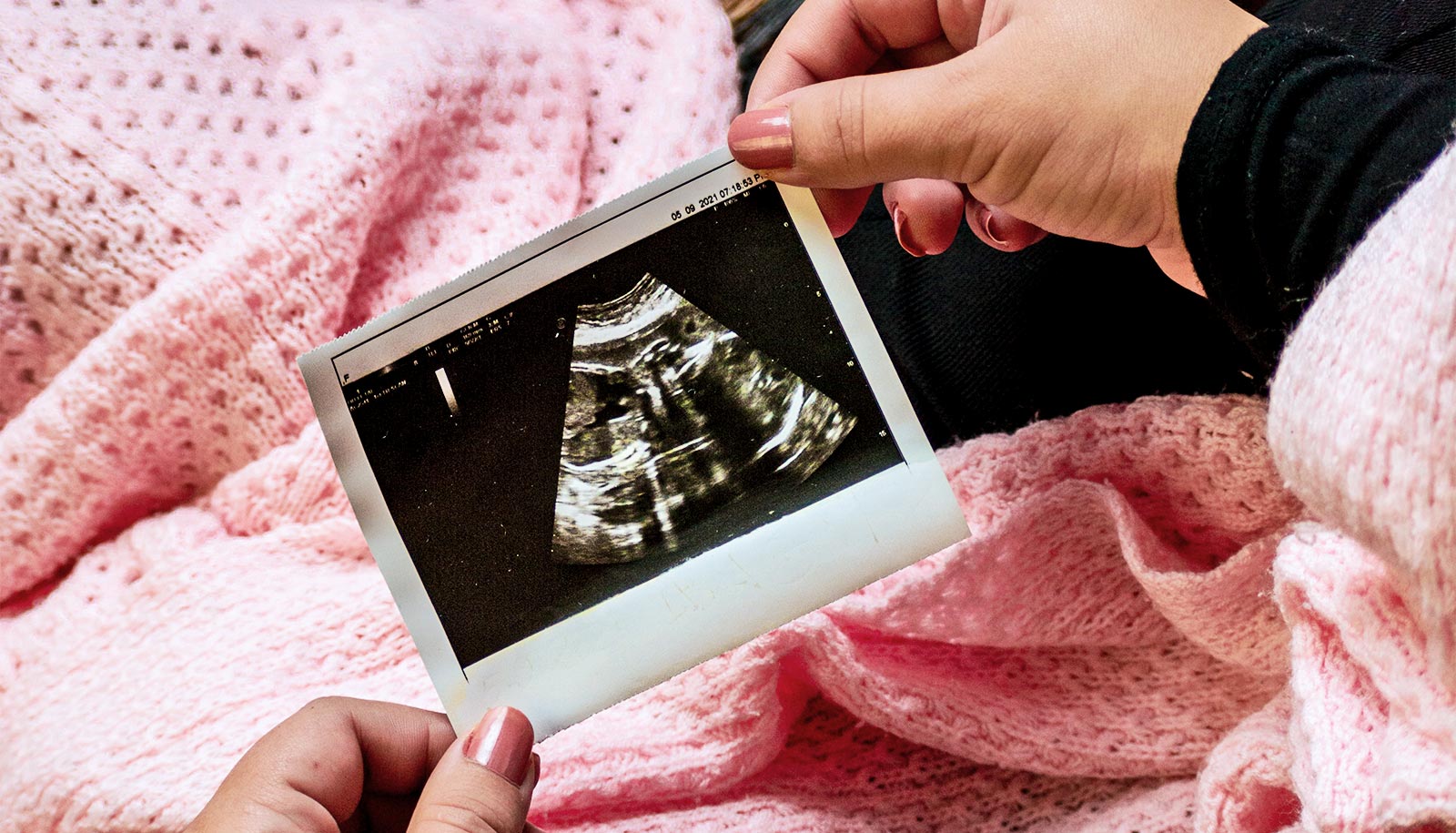A protein in cerebrospinal fluid associated with Alzheimer’s disease is also a driver of the pregnancy condition of preeclampsia, a new study shows.
It can influence diagnosis and treatment of the condition, the researchers report.
The researchers identified the protein, cis P-tau, in the blood and placentas of people with preeclampsia. They also found that depleting cis P-tau prevented the development of preeclampsia in mice.
“Our study identifies cis P-tau as a culprit and biomarker for preeclampsia,” says Surendra Sharma, who recently retired from his Brown University roles as a professor of pathology and laboratory medicine (research) and professor of pediatrics (research). “It can be used for early diagnosis of the complication and is a crucial therapeutic target.”
Preeclampsia affects 5% to 8% of pregnancies globally and is the leading cause of maternal and fetal mortality due to premature delivery, complications with the placenta, and lack of oxygen. The root cause of preeclampsia has so far remained unknown, Sharma says, and without a known cause there has been no cure.
The protein cis P-tau has mainly been associated with neurological disorders like Alzheimer’s disease, traumatic brain injuries, and stroke. Kun Ping Lu and Xia Zhen Zhou at Western University in Canada discovered this association in 2015 as a result of their decades of research on the role of tau protein in cancer and Alzheimer’s.
In 2016, Sharma and his team identified that preeclampsia and diseases like Alzheimer’s had similar root causes related to protein issues.
Sharma and Sukanta Jash first met Lu and Zhou in 2019. Zhou had developed an antibody to target only the toxic cis P-tau protein while leaving its healthy counterpart unscathed. The antibody has shown promising results in animal models and human cell cultures in treating the brain conditions, and is currently being tested in clinical trials in human patients with traumatic brain injury and Alzheimer’s.
The researchers had previously discovered that cis P-tau was significantly dysregulated in the human placenta, comparable to what happens in the brains of people affected by Alzheimer’s. They became curious whether Zhou’s antibody could work as a potential treatment for preeclampsia.
In the new study, the researchers used multiple approaches to demonstrate the significance of tau in early- and late-onset preeclampsia, including measuring for cis P-tau in the blood and placenta from human patients with preeclampsia as well as depleting cis P-tau from a humanized mouse model of preeclampsia.
When the researchers tested Zhou’s antibody in mouse models with preeclampsia, they discovered that the antibody depleted not only the cis P-tau protein but also some of the effects associated with preeclampsia.
“In this study, we found the cis P-tau antibody efficiently depleted the toxic protein in the blood and placenta, and corrected all features associated with preeclampsia in mice,” Sharma says. “Clinical features of preeclampsia, like elevated blood pressure, excessive protein in urine, and fetal growth restriction, among others, were eliminated and pregnancy was normal.”
The researchers say the findings shed light on the connections between preeclampsia and brain health.
“Preeclampsia presents immediate dangers to both the mother and fetus, but its long-term effects are less understood and still unfolding,” Sharma says. “Research has suggested a heightened risk of dementia later in life for both mothers who have experienced preeclampsia and their children.”
However, he adds, the causal link between preeclampsia and dementia is not known.
“Our study adds another layer to this complexity,” says Jash, an assistant professor of molecular biology, cell biology, and biochemistry (research) and assistant professor of pediatrics (research) at Brown. “For the first time, we’ve identified significant levels of cis P-tau outside the brain, in the placenta and blood of preeclampsia patients. This suggests a deeper connection between preeclampsia and brain-related issues.”
Screening tests for the cis P-tau biomarker, combined with therapies involving the cis P-tau antibody, could change the outlook for pregnant people with preeclampsia, Jash says.
“The prospective application of cis P-tau antibody as a therapeutic intervention for preeclampsia has promise in mitigating the occurrence of subsequent neurodegenerative diseases in women who have undergone preeclampsia during pregnancy.”
Sharma, Jash, and their team have been working on developing a lab test for preeclampsia.
“These astonishing findings bring us closer to our goal of early detection of preeclampsia and therapies to treat the condition,” Sharma says.
The study appears in Nature Communications.
The US National Institutes of Health, the Canada Foundation for Innovation, and Canadian Institutes of Health Research funded the work.
Source: Brown University



